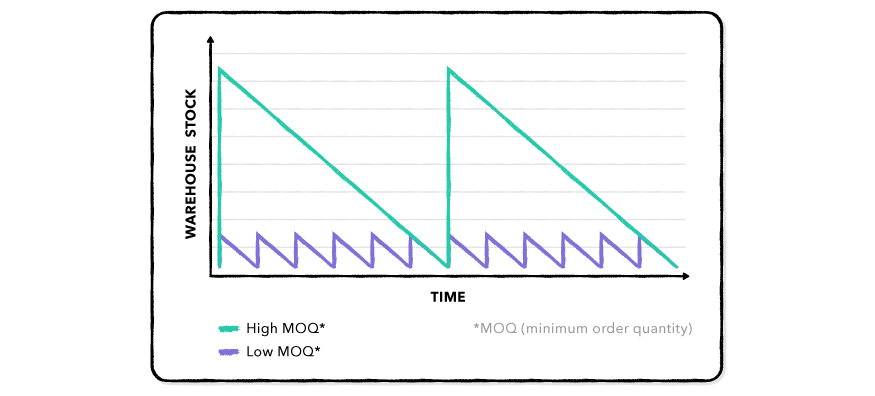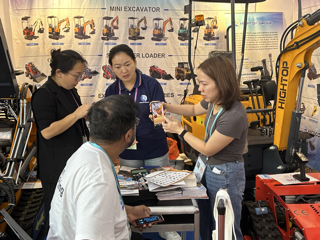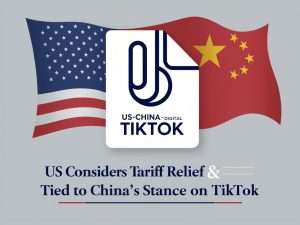Attending the Canton Fair as a small buyer can be both exciting and challenging. As one of the world’s largest trade fairs, it’s a bustling center where thousands of suppliers present a vast range of products, often geared toward large-scale orders. For those seeking smaller quantities to test products or start a business, the fair presents unique hurdles, including high Minimum Order Quantities (MOQs) and intense competition from bigger buyers. But small buyers aren’t without options—preparation, flexibility, and authentic connections with suppliers can make all the difference. This guide will reveal practical strategies and insights from real experiences, showing how even small buyers can turn the Canton Fair into a valuable sourcing opportunity.
Deconstructing Minimum Order Quantities (MOQs) – What No One Tells You
 As a small buyer, understanding Minimum Order Quantities (MOQs) is crucial to navigating the Canton Fair effectively. MOQs often feel like a frustrating barrier, especially for those looking to source smaller quantities. But there’s a reason suppliers insist on them—and it goes beyond simply maximizing profit.
As a small buyer, understanding Minimum Order Quantities (MOQs) is crucial to navigating the Canton Fair effectively. MOQs often feel like a frustrating barrier, especially for those looking to source smaller quantities. But there’s a reason suppliers insist on them—and it goes beyond simply maximizing profit.
Here are the core reasons why high MOQs are so common:
- Production Efficiency: Many suppliers operate in high-output factories where producing items in bulk reduces per-unit costs. Lower volumes mean higher overheads for each piece, which affects the supplier’s margins.
- Material Sourcing: For suppliers, buying raw materials in bulk is often more cost-effective. When a buyer requests smaller quantities, it disrupts this balance, increasing costs and limiting the supplier’s flexibility with materials.
- Inventory and Storage Costs: Managing small orders often means holding extra inventory, which ties up storage space and adds logistical strain. Suppliers typically prefer larger orders that help streamline their warehousing.
- Quality Control Standards: High MOQs allow for more consistent production and quality control. Small orders can introduce variability in production runs, affecting overall quality and increasing the need for costly adjustments.
Understanding these factors is essential for small buyers who aim to negotiate more effectively. By recognizing the challenges suppliers face, you can approach conversations with empathy, building trust and possibly finding compromises on MOQs.
Preparing Your Strategy Before the Fair – A Step-by-Step Approach
To make the most of the Canton Fair as a small buyer, preparation is key. Approaching suppliers with a clear plan not only boosts your confidence but also demonstrates to suppliers that you’re serious, even with smaller order sizes. Here’s a step-by-step guide to help you prepare effectively.
1. Define Your Quantities and Budget
Start by clarifying your ideal order quantities and budget per product. Suppliers will take your inquiries more seriously if you show you know exactly what you need.
2. Research Suppliers in Advance
Use platforms like Alibaba or 1688 to pre-select potential suppliers who might be open to smaller orders. This step saves time and allows you to engage with suppliers more confidently once at the fair.
3. Craft Your Negotiation Points
Suppliers often have wiggle room with their Minimum Order Quantities (MOQs), especially if you negotiate effectively. Think about what value you can offer them in return—whether it’s a promise of larger future orders, a fast payment, or flexible timelines.
4. Prepare a Supplier Comparison Table
Create a simple table with each supplier’s MOQ, product specifications, and other key details. This will make it easier to compare options and spot negotiation opportunities directly at the fair.
Here’s an example of how MOQs might vary by industry, giving you a starting point for negotiations:
| Industry | Typical MOQ | Potential Negotiation Points |
|---|---|---|
| Electronics | 500-1000 units | Emphasize future orders, rapid payment terms |
| Apparel | 300-500 pieces | Flexible timelines, ability to scale orders over time |
| Household Goods | 200-400 units | Interest in multiple product categories |
| Toys | 1000+ units | Agreement to exclusive supplier terms, long-term contract |
5. Set Communication Goals
Think about how you’ll approach conversations with suppliers. Being direct about your needs while showing flexibility can open doors to negotiation. Positive, respectful interactions often yield better results with suppliers who are skeptical about small orders.
By taking these steps, you’ll not only feel more confident but also be better equipped to navigate conversations and negotiations with clarity and purpose at the Canton Fair.
Approaching Suppliers on the Ground – Negotiation Techniques That Work
Walking into the Canton Fair can be overwhelming, especially as a small buyer. With thousands of suppliers and buyers from around the world, standing out and negotiating effectively for small orders requires a unique approach. Here’s how to make those face-to-face interactions work in your favor, even when competing with larger buyers.
1. Open with Respect and Curiosity
Start the conversation with genuine interest in their products. Show that you’ve researched their offerings and ask insightful questions. This positions you as a serious buyer, even if your order volume is smaller. Phrases like, “Your product range looks impressive—what would you recommend for a smaller initial order?” can open up the conversation without focusing immediately on MOQ.
2. Frame Your Needs with a Future Focus
Suppliers are more likely to negotiate if they see potential for a growing partnership. Instead of saying, “I only need a small order,” try “I’d like to start with a smaller test order to evaluate product fit and scale from there.” This positions your request as a stepping stone to a larger commitment.
3. Offer Compromises
Show flexibility with payment terms or timelines in exchange for a lower MOQ. For example, “If I can confirm payment within 3 days, could we start with 200 units?” or “Would it help if I extended the lead time?” Offering something in return demonstrates that you’re willing to meet them halfway.
4. Build Trust Through Transparency
Share your goals honestly. Letting suppliers know your intention—whether testing the market, sourcing samples, or building a new line—can build trust and help them see your order in context. A phrase like, “We’re evaluating new suppliers for a targeted product line and need to keep quantities manageable to start,” communicates your intentions and encourages understanding.
5. Listen and Be Ready to Walk Away Respectfully
Sometimes, a supplier’s MOQ simply won’t fit your needs. By respectfully acknowledging this, you leave the door open for future possibilities. “Thank you for explaining. If we expand soon, I’ll be back in touch. I really appreciate your time.” This keeps the interaction positive, as suppliers often appreciate respectful communication, even when an immediate deal isn’t reached.
These strategies help you move beyond numbers and build a connection. At the Canton Fair, a human approach, combined with clear objectives, can often achieve more flexibility from suppliers than you might expect.
Making the Most of the Fair’s Phases – When Small Buyers Have a Better Chance
The Canton Fair is organized in three distinct phases, each focusing on specific types of products. Knowing when to attend is crucial for small buyers, as certain phases are more conducive to flexible MOQs and supplier openness to smaller orders. Understanding which phase aligns with your needs can save time and increase your chances of finding a supplier willing to negotiate.
Here’s a breakdown of each phase to guide your planning:
| Phase | Products Featured | Typical MOQ Range | Best for Small Buyers? |
|---|---|---|---|
| Phase 1 | Electronics, Machinery, Building Materials | High (500-1000+ units) | Limited (better for bulk orders) |
| Phase 2 | Consumer Goods, Gifts, Home Decorations | Moderate (200-500 units) | Good (many small-scale suppliers) |
| Phase 3 | Textiles, Clothing, Office Supplies, Health Products | Variable (50-300+ units) | Excellent (often open to small orders) |
Phase 1 caters to heavy industries like electronics, machinery, and building materials. This phase generally has higher MOQs due to the nature of the products and the suppliers’ focus on large-scale buyers. For small buyers, this phase might be challenging unless you’re open to high minimums.
Phase 2 is more suitable for smaller buyers, featuring consumer goods, home decor, and gifts. Suppliers in this phase often have lower MOQs and are more flexible, especially with items that lend themselves to smaller production runs. This phase also attracts a wide variety of products, increasing the chances of finding suppliers open to small orders.
Phase 3 offers the most potential for small buyers, showcasing textiles, fashion items, health products, and office supplies. Suppliers in this phase are often accustomed to smaller MOQs due to the variability in product demands. This is the best phase for buyers looking to start with small, flexible orders.
By aligning your visit with the right phase, you’ll not only optimize your time but also increase your chances of finding suppliers more open to negotiating smaller orders. This strategic approach helps small buyers make the most of the Canton Fair, even when MOQs are a primary concern.
Utilizing a Sourcing Agent – An Invaluable Help for Small Volumes
For small buyers, the Canton Fair can be overwhelming. Working with a sourcing agent can simplify the experience, providing invaluable support for navigating the fair, negotiating with suppliers, and managing logistics, especially for small orders. Here’s a quick look at the benefits of using a sourcing agent like HaiPlus:
- Local Expertise: Agents understand the fair’s layout, can navigate cultural nuances, and know how to identify reliable suppliers.
- Negotiation Support: Experienced agents can negotiate lower MOQs on your behalf, leveraging their relationships and expertise.
- Quality Control: Sourcing agents often provide quality assurance, helping ensure products meet your standards before shipping.
- Logistics Management: From shipping options to customs, agents handle the logistical details that can be complex for small buyers.
- Time and Cost Efficiency: With an agent’s help, you can save time and avoid costly mistakes, making your investment in smaller quantities more feasible.
| Factor | Going Solo | Using a Sourcing Agent (e.g., HaiPlus) |
|---|---|---|
| Cost | Lower upfront costs | Agent fee, but saves on potential costly errors |
| MOQ Negotiation | Limited leverage | Increased chances of negotiating lower MOQs |
| Time Investment | High, due to research and coordination | Lower, as agent handles communication and coordination |
| Quality Assurance | Risk of quality issues if unmanaged | Agents often conduct quality checks pre-shipment |
| Logistics | Must handle all shipping and customs | Agent organizes logistics, reducing delays |
| Cultural Barriers | Possible language and cultural challenges | Agent bridges language and cultural gaps |
 Choosing to work with a sourcing agent, especially for a major event like the Canton Fair, can make a significant difference in both time and cost savings. Agents like HaiPlus by HAI International Holding not only guide you through the fair but also manage supplier negotiations, quality assurance, and logistics, making it easier to source smaller quantities with confidence.
Choosing to work with a sourcing agent, especially for a major event like the Canton Fair, can make a significant difference in both time and cost savings. Agents like HaiPlus by HAI International Holding not only guide you through the fair but also manage supplier negotiations, quality assurance, and logistics, making it easier to source smaller quantities with confidence.
Interested in sourcing at the Canton Fair? Discover how HaiPlus by HAI International Holding can simplify your experience and help you secure the best deals, even for small orders. With our expert sourcing agents by your side, you can make the most of your Canton Fair visit and focus on growing your business. Contact HaiPlus today to start planning your sourcing journey!
Exploring Online Channels – Extending the Relationship Beyond the Fair
The Canton Fair offers a fantastic opportunity to build initial relationships, but the real work begins after the fair. For small buyers, maintaining connections and testing suppliers with smaller orders can help lay the foundation for long-term partnerships. Using online channels like Alibaba or 1688, you can keep communication going, place trial orders, and assess supplier reliability. Here’s a step-by-step checklist to help you make the most of these relationships after the fair:
- 1. Follow Up Promptly
Within a week of the fair, reach out to the suppliers you connected with. A simple message that reinforces your interest and expresses appreciation can go a long way. Include any specific products you discussed to keep the conversation relevant. - 2. Request Samples or Small Orders
To evaluate product quality, ask for samples or place a small test order through platforms like Alibaba or directly via email. Testing the supplier with a smaller order helps you assess their responsiveness and reliability without committing too much upfront. - 3. Communicate Expectations Clearly
Establish clear expectations for quality, packaging, and delivery timelines for these smaller orders. Small buyers often face more challenges in quality consistency, so setting expectations early can help avoid issues. - 4. Use Online Channels to Monitor Product Availability and Updates
Many suppliers update their online profiles regularly. Monitoring these platforms keeps you informed of new products, seasonal deals, and any changes in their MOQ policies. This can help you identify the best time to place future orders. - 5. Build on Positive Interactions
If the supplier delivers well on your small orders, acknowledge their effort and discuss possibilities for scaling up gradually. Suppliers often appreciate feedback, and a positive working relationship can make them more flexible with MOQs in the future.
By following these steps, you can seamlessly transition from in-person meetings at the Canton Fair to effective, ongoing collaboration online. Building trust and testing suppliers with small orders through online platforms will give you the insight you need to grow your sourcing strategy while managing risk.
Optimizing Your Order – Logistics and Quality Control for Small Volumes
When sourcing smaller quantities, logistics and quality control become even more crucial. Shipping small volumes can be costly if not managed correctly, and ensuring product quality is essential to avoid costly mistakes on limited orders. Here’s how to streamline both logistics and quality control to maximize the success of your small orders.
Logistics Options for Small Orders
Selecting the right logistics approach is essential for managing costs and efficiency. Here’s a comparison of common logistics options for small volumes:
| Logistics Option | Description | Best For | Cost Considerations |
|---|---|---|---|
| Consolidated Freight | Combines multiple shipments into one, reducing shipping costs | Small, frequent orders | Lower cost per unit, but may increase lead time |
| Air Freight | Fast but more expensive, suitable for high-value or urgent items | Smaller, high-value orders | Higher cost per kg than sea freight |
| Express Shipping (e.g., DHL, FedEx) | Direct, door-to-door shipping for small packages | Sample or small test orders | High cost but very reliable and quick |
| Sea Freight (LCL) | Less-than-container load; shared container for smaller shipments | Non-urgent, bulkier shipments | Lower cost, but longer transit times |
For small buyers, consolidated freight and LCL (less-than-container-load) shipping are usually the most cost-effective options, while express shipping can be beneficial for high-priority samples or initial orders.
Essential Quality Control Checks for Small Orders
To avoid potential issues with product quality, small buyers should focus on key quality checks that provide peace of mind without excessive costs. Here are some crucial steps:
- 1. Request Detailed Product Photos
Before finalizing any order, ask the supplier for high-quality photos of the items ready for shipment. This helps ensure the products match your specifications. - 2. Inspect Samples Thoroughly
If possible, request a sample of each product batch, especially if you’re placing a trial order. Inspect these samples to verify material quality, color, functionality, and other specifications. - 3. Verify Packaging Standards
Small orders are often more susceptible to damage in transit. Confirm that packaging meets your standards for protection, especially if the products are fragile. - 4. Use Third-Party Inspection Services
For high-value or delicate items, a third-party inspection can be a wise investment. These services check for product conformity, functionality, and packaging before the shipment leaves the factory. - 5. Conduct Random Spot Checks for Larger Small Orders
For larger orders, random spot checks (selecting a few items at random) provide a quick assessment of quality consistency across the batch. This can prevent any surprises upon delivery.
Optimizing logistics and performing thorough quality checks ensure that your small orders arrive safely and meet your standards. By balancing cost-effective shipping methods with smart quality control practices, you can build reliable, long-term relationships with suppliers without compromising on quality.
The Human Experience at the Fair – Practical Tips and Final Thoughts
The Canton Fair is more than just a trade event; it’s a dynamic human experience where buyers and suppliers from around the world come together, forming connections that often extend beyond business. For small buyers, this atmosphere is both challenging and inspiring. Here are some practical insights drawn from the experiences of small buyers who’ve navigated the fair’s bustling aisles and forged valuable partnerships.
Key Takeaways from Small Buyers at the Canton Fair:
- Be Open to Building Relationships, Not Just Transactions
Suppliers appreciate buyers who show genuine interest in their products and stories. Approach each conversation as a potential partnership, not just a negotiation. - Prepare for Long Days and Be Flexible
The fair is massive, and navigating it can be exhausting. Be ready to adapt your schedule to unexpected discoveries and opportunities. Many small buyers recommend wearing comfortable shoes and keeping plenty of water on hand. - Embrace Cultural Nuances and Show Respect
Respectful, culturally aware interactions go a long way in building trust. Take time to learn basic customs or phrases, as small gestures can make a big impact. - Ask Questions Beyond Product Specs
The Canton Fair is a unique chance to learn directly from suppliers. Ask about their production processes, sourcing practices, and even challenges. Understanding their business helps you negotiate effectively and shows you’re genuinely invested. - Network with Other Buyers for Insights and Support
You’re not alone—other small buyers are facing similar challenges. Networking with fellow buyers at the fair can provide support, shared tips, and even future collaboration opportunities.

The Canton Fair can be overwhelming for first-timers, especially small buyers, but embracing the fair’s human side can be a game-changer. By building connections, remaining adaptable, and showing respect, small buyers can turn this overwhelming experience into a gateway to lasting partnerships and opportunities. As you prepare for the fair, keep these tips in mind to make the most of your journey and bring valuable insights back to your business.
Canton Fair as a Stepping Stone for Ambitious Small Buyers
The Canton Fair offers a unique gateway for small buyers eager to explore new sourcing opportunities and build meaningful supplier relationships. While high MOQs and vast crowds may seem daunting, the fair is filled with possibilities for those willing to approach it strategically and connect on a human level. By understanding supplier needs, negotiating effectively, and following up through online channels, small buyers can turn the Canton Fair into a powerful stepping stone for business growth.
Ready to make the most of your Canton Fair experience? With the right preparation and the support of experts like HaiPlus by HAI International Holding, you can navigate the fair confidently and secure the deals you need to succeed. Contact HaiPlus today to start planning your Canton Fair journey and take your sourcing to the next level.
FAQ: Making the Most of the Canton Fair as a Small Buyer
Can small buyers really succeed at the Canton Fair, even with limited budgets?
Yes! While the fair is known for larger orders, many suppliers are open to smaller volumes, especially if you approach them strategically. By preparing well, negotiating with empathy, and focusing on relationship-building, small buyers can secure favorable deals.
How can I negotiate lower MOQs with suppliers at the fair?
Be upfront about your intentions, such as starting with a smaller test order, and emphasize potential future growth. Suppliers are often more flexible if they sense a long-term relationship. Offering quick payment terms or flexibility with timelines can also help.
Which phase of the Canton Fair is best for small buyers?
Phase 3 is generally the most suitable, as it includes categories like textiles, clothing, and health products, where suppliers tend to have more flexible MOQs. Phase 2, which features consumer goods, can also be good for smaller buyers.
Do I need a sourcing agent to help me at the Canton Fair?
While you can attend solo, a sourcing agent like HaiPlus by HAI International Holding can be invaluable. Agents provide local expertise, assist in negotiations, handle quality checks, and streamline logistics, making it easier to manage small orders effectively.
How can I maintain relationships with suppliers after the fair?
Following up promptly, placing small trial orders, and using online platforms like Alibaba or 1688 can help keep the connection strong. Regular communication and feedback also show suppliers that you’re serious, even if your initial orders are small.
What quality control steps should I take for small orders?
Request samples, ask for detailed product photos, and verify packaging standards. For high-value items, consider using third-party inspection services. These steps help you ensure product quality without committing to larger volumes.
Is it possible to network with other buyers at the Canton Fair?
Absolutely! The fair is a prime opportunity to connect with other small buyers, share experiences, and even explore future collaborations. Many attendees find that networking with peers provides added insights and support.












